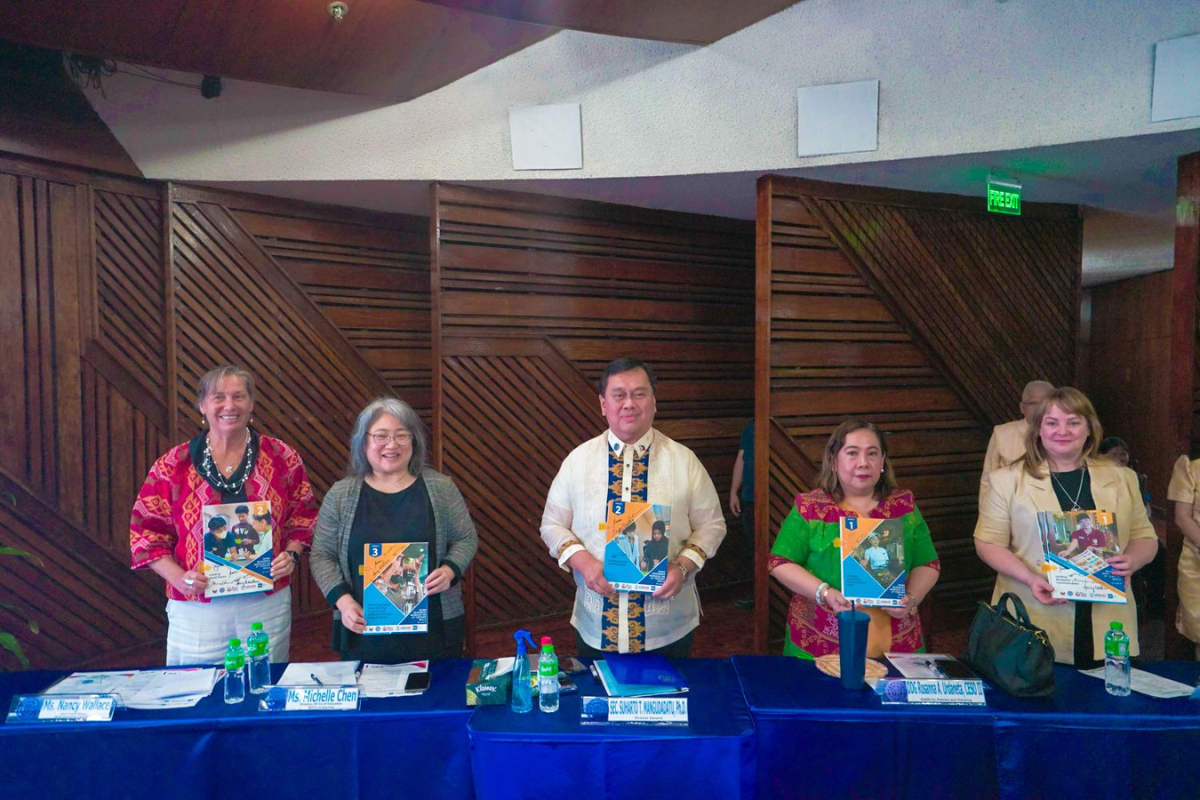TESDA, USAID UNVEIL MODULES FOR NC 3 AND NC 4
THE TECHNICAL Education and Skills Development Authority, in partnership with the United States Agency for International Development, launched the newly developed Work Readiness Modules on 21st Century Skills for higher level technical vocational education and training qualifications.
The modules were developed by TESDA and Education Development Center master trainers through Opportunity 2.0, a USAID program that supports Philippine systems to provide second-chance education to out-of-school youth and enhance their employment and livelihood opportunities.
TESDA Director General Suharto Mangudadatu officially received the modules from USAID Opportunity 2.0 Chief of Party Jill Jarvi during the flag raising ceremony at the agency’s Central Office in Taguig City.
“We have finalized and packaged these 18 additional Work Readiness Modules specifically designed for National Certificate level III and IV programs which aim to better prepare Filipinos for the demands of the modern job market,” the TESDA chief explained.
According to Secretary Mangudadatu, the modules will help strengthen the Philippine workforce by equipping them with a stronger foundation in essential life skills alongside higher-level technical training.
It can be recalled that TESDA and the USAID Opportunity 2.0 had earlier developed 18 Work Readiness Modules customized for NC I and NC II programs in 2021. These modules are aligned with TESDA’s strategic roadmap and further reinforce the integration of essential 21st Century Skills.
Building on this TESDA and USAID Opportunity 2.0 collaboration, a writeshop focusing on the development of the NC III and IV modules was organized last April 2023 in Cebu City which resulted in the additional 18 modules.
The NC level III learning modules include competency titles as: Leading Workplace Communication; Leading Small Teams; Applying Critical Thinking and Problem-Solving Techniques in the Workplace; Working in a Diverse Environment; Proposing Methods of Applying Learning and Innovation in the Organization; Using Information Systematically; Evaluating Occupational Safety and Health Work Practices; Evaluating Environmental Work Practices; and, Facilitating Entrepreneurial Skills for Micro, Small, and Medium Enterprises.
Meanwhile, the NC IV modules include titles such as: Utilizing Specialized Communication Skills; Developing and Leading Teams; Performing Higher-Order Thinking Processes and Applying Techniques in the Workplace; Contributing to the Practice of Social Justice in the Workplace; Managing Innovative Work Instructions; Managing and Evaluating the Usage of Information; Leading in the Improvement of Occupational Safety and Health Programs, Policies, and Procedures; Leading Towards Improvement of Environmental Work Programs, Policies and Procedures; and, Sustaining Entrepreneurial Skills.
These competencies shall now be integrated in TESDA’s existing NC level III and IV Training Regulations, and into future Philippine tech-voc training programs.
“The development of the work readiness modules exemplifies the lasting impact of TESDA’s collaboration with the USAID Opportunity 2.0 Program, and will be invaluable as TESDA works towards the continuous upskilling and strengthening of the Philippine workforce,” the TESDA chief added.














